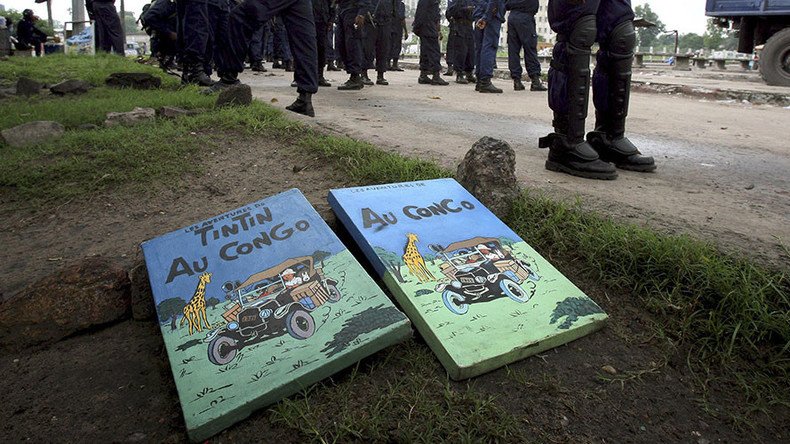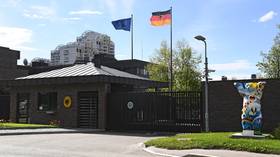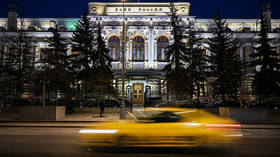#JeSuisTintin… except his racist books awkwardly celebrating Belgium’s dark past

Tintin became a symbol of solidarity this week after the deadly Brussels attacks killed 31 people and injured hundreds more, until the racist legacy of the lovable character and Belgium’s dark colonial past were awkwardly put in context.
Classic images of Tintin crying were posted hours after the attacks in what was intended to be a message of peace and solidarity.
However, most of the media that covered the digital outpouring of emotions largely failed to mention the creator of the images, Georges Prosper Remi, aka Hergé, was known as a fascist who included overtly racist drawings in his Tintin books.
Tintin's writer is racist by our standards and we don't care if he's giving support to the victims, we want him gone https://t.co/P5r3qVOTpF
— OddSauce (@0ddSauce) March 23, 2016
Tintin's not the perfect symbol for unity to be totally honest https://t.co/0Oq5oKvT8v
— 2Tapu (@2TAPU) March 23, 2016
The Adventures of Tintin regularly depicted Africans as lazy and simple, a view often used to justify colonialism on the continent. In the late 19th and early 20th century, the brutal imperial regime of Belgium’s King Leopold II saw millions killed in the Congo.
Hergé published Tintin in the Congo for the ultra-conservative Catholic Belgian newspaper Le Vingtième Siècle, depicting Congolese natives as inept barbarians, incapable of communicating properly, in what his biographer Harry Thomson said were the normal views during the 1930s and 40s.
Many people would beg to differ.
Tintin in the Congo should not be sold to children | David Enright https://t.co/n0Un5mU6k2
— Prithwiraj Das (@drprithwirajdas) March 24, 2016
@suey2y@volewriter The first #TinTin books were very racist; it was at the time of Belgium Congo and Herge was a Belgian.
— NHS saved Julian (@Run4demHills) July 5, 2015
@liamobde Herge was definitely a European of the time. Racist, white supremacist.
— Hinsarmu (@WaQQN) February 18, 2015
A post from website Alistgator highlighted the top racist Tintin cartoons and stated: “When Tintin travels to the Congo, it is not as a reporter. He goes there to hunt the wildlife, humiliate the people, and be praised as a deity. He goes as a colonialist, more often referred to as a missionary. ‘Marvelous,’ he says of the buildings and intrusion of Belgian culture and lifestyle on Congolese land.”
Players of Congolese descent from Belgium’s national soccer team shared solidarity with the victims, but there was no Tintin appreciation.
Pray for Belgium Pray for the world 🙏🏼 all my toughts are with family and friends of the victims.
— Christian Benteke (@chrisbenteke) March 22, 2016
1) Horrified and revolted. Innocent people paying the price again. My thoughts are with the families of the victims. #Brussels
— Vincent Kompany (@VincentKompany) March 22, 2016
For those struggling to know the motive behind Tuesday’s attacks, they can turn to Tintin’s adventures to understand the context of Belgium’s violent history and its modern implications.












